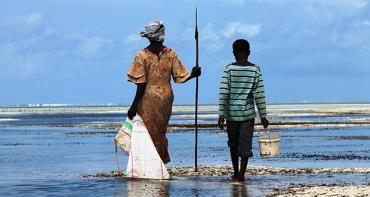By Uzoamaka Nwamarah, Adviser Climate Change, and Knollis Delle, Assistant Research Officer, Commonwealth Secretariat.

Transparency is one of the most powerful tools we have to inspire confidence, accelerate action, and ensure accountability in the global climate response. At the heart of the Paris Agreement is Article 13, establishing the Enhanced Transparency Framework (ETF) — a major pillar designed to foster mutual trust and confidence among countries, referred to as Parties, while promoting the effective implementation of climate commitments.
The ETF sets out a clear roadmap for countries to report on their climate actions through Biennial Transparency Reports (BTRs), covering mitigation and adaptation efforts, as well as support provided or received in the form of climate finance, technology transfer and capacity building. For Commonwealth member countries, particularly those classified as Small Island Developing States (SIDS) and Least Developed Countries (LDCs), the ETF is more than just a reporting obligation. It is a mechanism to showcase progress, identify gaps to be filled, secure funding, and further guide national climate policy implementation.
More than a technical exercise
For real and equitable action, the transparency process must be more than a technical exercise. It must be inclusive and be reflective of countries’ unique needs, circumstances and capabilities. The value of BTRs lies not only in data collection but in the stories they tell, the voices they elevate and the actions they spur. Integrating gender and youth perspectives into climate transparency systems ensures that reporting reflects the lived experiences of the communities most affected by climate change.
Gender-disaggregated data, inclusive consultation processes, and youth engagement strategies are essential to design effective climate policies and programmes. Several Commonwealth countries have made important strides in this area, but scaling these practices across national systems remains work in progress.
Climate finance and technology transfer
Despite the ambition and effort of many developing countries, a common barrier remains: insufficient access to finance to meet ETF requirements. Climate finance is critical for building the technical infrastructure and human resources needed for high-quality data capture, analysis and reporting. Equally important is increased capacity building: from training government officials, including data managers, to establishing sustainable institutional frameworks.
Furthermore, technology transfer is indispensable for strengthening greenhouse gas inventories, tracking adaptation progress, and aligning with evolving ETF modalities. These support streams must be predictable, coordinated and country-driven, allowing nations to shift from ad hoc efforts to systematised institutional processes.
Supporting member countries
The Commonwealth Secretariat, through its Commonwealth Climate Finance Access Hub (CCFAH) and Commonwealth NDC Programme continues to provide support to its member countries in implementing the ETF. Recent efforts have included the delivery of technical workshops together with partners such as the African Development Bank (AfDB), Initiative for Climate Action Transparency (ICAT), United Nations Framework Convention on Climate Change (UNFCCC) and the United Nations Environment Programme Capacity Building Initiative for Transparency (UNEP-CBIT). They have also contributed to knowledge exchanges and gender-inclusive policy dialogues. These initiatives are not just about compliance, they are about empowerment, access and action.
As the climate community convenes in Bonn for the UNFCCC June Climate Meetings (SB 62) - the mid-year talks and critical checkpoint on the road to the 30th UN Climate Change Conference (COP30) in Belém, Brazil - the Commonwealth will be hosting a side event on Advancing transparency and capacity for climate action: Commonwealth BTR Review on 20 June.
This event will offer a platform to reflect on progress, share experiences, and explore the support needed to scale and sustain transparency efforts across the Commonwealth. It will push for transparency that builds trust and turns insight into action.



